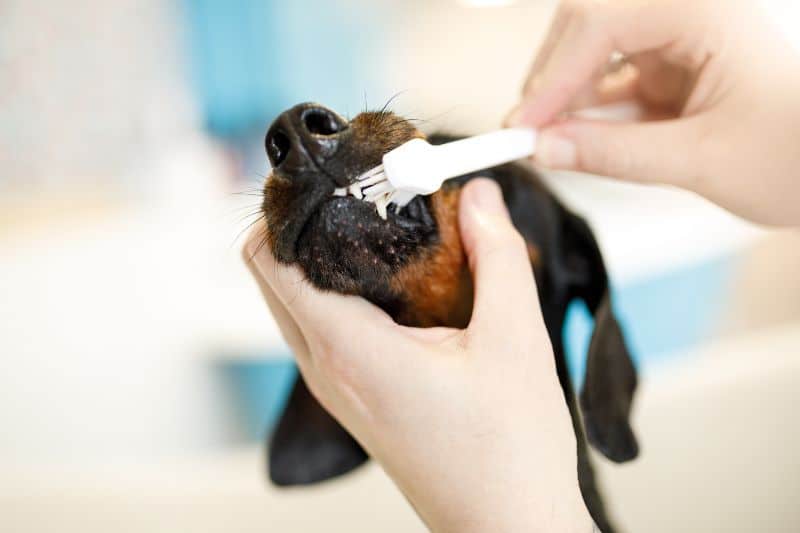Not Just Hype: Pet Dental Care Is Paramount to Pet Health

It used to be that pet owners would simply grin and bear their pet’s foul-smelling breath. However, it’s no longer recommended to accept doggie breath or tuna breath as natural. The first sign that there are problems in the mouth is bad breath!
Because pet dental care is linked to so many different areas of overall health, caring for their teeth and gums is absolutely crucial to their longevity.
Adult Pet Problems
The vast majority of cats and dogs over the age of two suffer from periodontal (gum) disease. While it’s not viewed as an issue plaguing younger pets, the fact is, gum disease is 100% preventable. If a pet dental care routine is established early on, a pet stands a better chance of enjoying a longer, healthier life.
The Stages of Gum Disease
Oral bacteria settles on the teeth, forming plaque. If it is not removed, plaque is calcified by the minerals found in saliva, becoming calculus (tartar). If plaque is allowed to get under the gumline, the result is inflammation (gingivitis). Left alone, gingivitis can cause the gums to bleed and recede. Deeper pockets are then formed between the teeth and the gums, leading to bone loss in the jaw and potential tooth loss.
A Really Big Problem
Periodontal disease is the most common diagnosis among cats and dogs, and is entirely avoidable. Not only is the process of losing teeth, gum tissue, and bone very painful, but the oral bacteria can enter the bloodstream and infect other parts of the body.
In this way, poor pet dental care can be linked with heart disease, kidney disease, liver disease, diabetes, cancer, blindness, and more.
The Silver Lining
To protect their long term health and wellness, providing pet dental care is essential. One of the reasons we recommend 1-2 wellness visits every year is because we’re given the chance to examine the mouth for any signs of dental disease. Depending on our findings, we may pursue a professional cleaning under anesthesia or treat a specific issue in the mouth.
Pet Dental Care at Home
In addition to annual exams and cleanings, pet owners can have a positive impact with a focus on pet dental care at home. Daily brushing is extremely effective with long term benefits, but 3-4 weekly brushings are great, too. Be sure to only use pet-specific toothpaste, and start slowly, and reward constantly with praise. Check out our pet dental care blog for more step-by-step tips.
Other Facets of Oral Hygiene
To keep oral bacteria in check, pet owners have loads of treats and toys to choose from. Check out this list of approved products by the Veterinary Oral Health Council. We may also prescribe a dental diet that supports your pet’s oral health.
The bottom line is that when we work together toward pet dental care, your best friend has the best chance for a long life. Remember, when problems in the mouth are left alone, they can develop into a full-fledged emergency.
If you have further questions or concerns, our veterinarians and staff members are always here for you at Animal Medical Hospital & 24-Hour Care.
